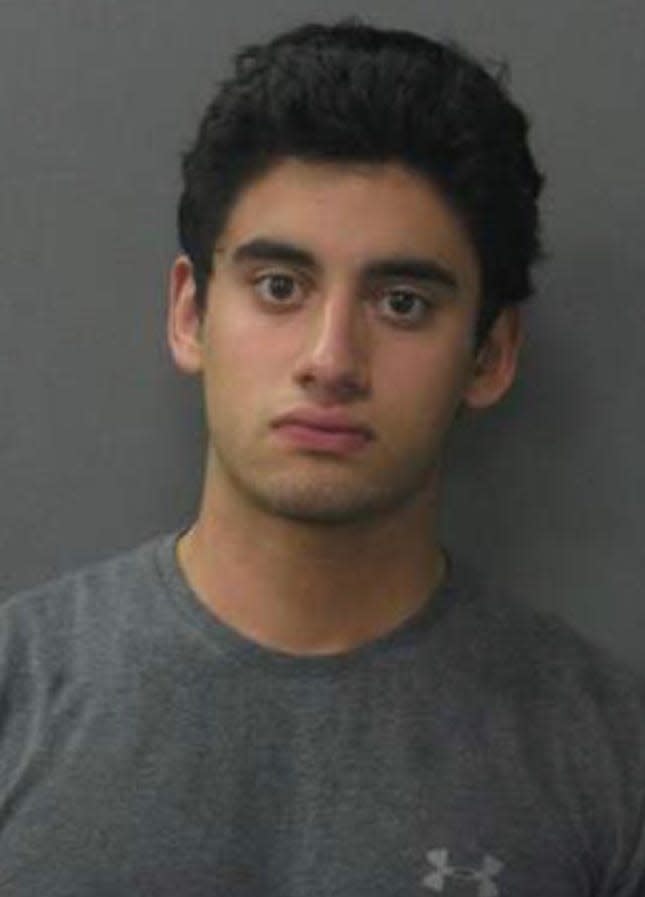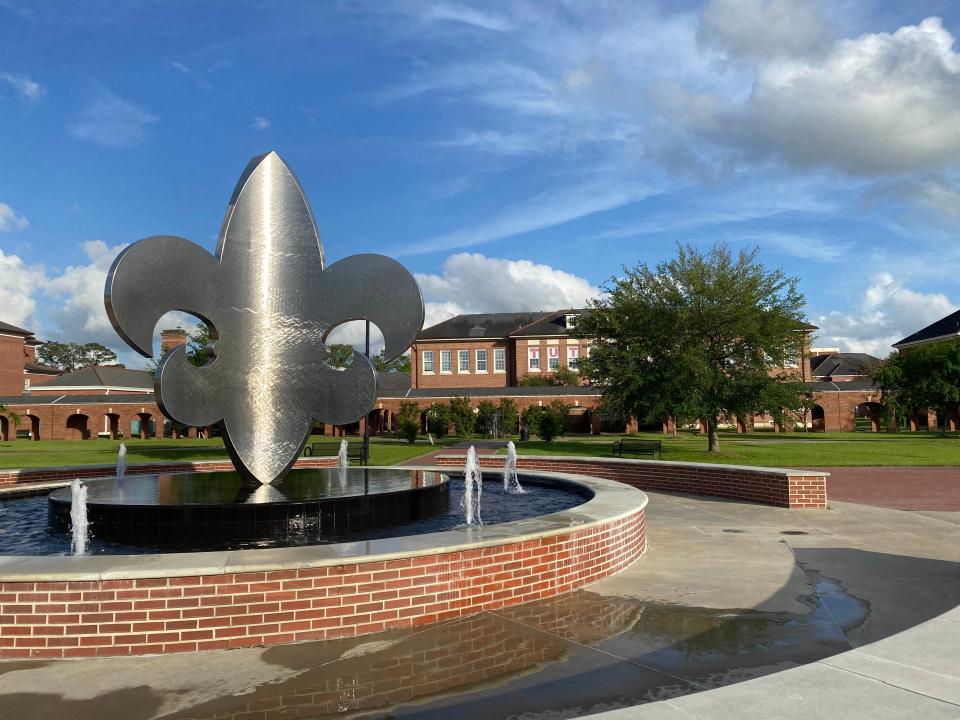UL Lafayette president promises reforms after USA TODAY sexual misconduct investigation
The president of the University of Louisiana at Lafayette promised to improve the school’s response to sexual assault allegations hours after a USA TODAY investigation revealed what he called “critical communication gaps that need to be addressed.”
Published Wednesday morning, the investigation chronicled how one student transferred three times to three of Louisiana’s largest public universities, each time within months of the latest accusation of sexual misconduct, before graduating from UL Lafayette in August 2020.
Six women reported the student for alleged sexual misconduct during his six years in college, the investigation found, but university and police officials repeatedly failed to share the allegations with each other, despite a 2015 law that required it.
In a letter to students, faculty and staff early Wednesday, UL Lafayette President Joseph Savoie called the article “troubling.”

“Though the University followed state and federal laws and policies as they existed at the time, the article highlights critical communication gaps that need to be addressed,” Savoie said in the letter, adding the school is working with legislators to reform state laws to solve these issues.
“But our work is not confined to legislation alone,” Savoie said. “We must continue to improve programs and initiatives and prevent this misconduct from occurring.”
Read the investigation: Six women reported a college student for alleged sexual misconduct. No one connected the dots.
Students, faculty and Louisiana lawmakers expressed outrage on social media over the handling of the allegations against Victor Daniel Silva by UL Lafayette, Louisiana State University and Louisiana Tech University, the Lafayette Police Department and the 15th Judicial District Attorney’s Office, which serves Lafayette Parish. Each institution failed to share information they had about Silva with each other, leaving the campuses without warning.
Silva, who did not respond to requests for comment for the story and hung up the phone on a reporter, has never been charged with a sex crime. He was arrested once, but prosecutors did not move forward with the case. He told police and others the allegations against him are false.

“This is sickening and tragic,” New Orleans City Council President Helena Moreno, a former state representative who co-wrote the 2015 law, said on Twitter. “It could have been prevented if laws/policies … I worked to create were followed. Instead those were blatantly ignored.”
Known as Act 172, the law requires universities and law enforcement agencies to alert each other to reports of alleged sex crimes involving students in their areas. It orders colleges to block students from transferring schools during sex offense investigations and to disclose any resulting disciplinary actions to schools that accept suspected students.
One by one, officials at the institutions failed to comply with the law's provisions or found loopholes to avoid them, USA TODAY’s investigation found. When women came forward about Silva, college officials and police didn’t communicate, didn’t convey critical information and didn’t connect the dots on a pattern that might have shaped how they pursued the allegations.
In 2015, Silva transferred from LSU to UL Lafayette weeks after he was accused of sexual assault. LSU did not disclose the allegation to UL Lafayette, even after learning of his arrest for allegedly assaulting a second woman months later.
The same year, after Silva’s arrest for alleged second-degree rape, the University of Louisiana at Lafayette placed Silva on probation, letting him stay on campus so long as he stayed out of trouble. Over his next three years there, three women reported him to Lafayette police for alleged sex crimes, but neither the police nor the district attorney’s office informed the school, despite an agreement under Act 172 that required it.

In 2018, Louisiana Tech University declined to investigate a woman’s sexual assault report against Silva because he dropped out three days after she reported it. The university said nothing to UL Lafayette when he transferred back the next month.
Officials at all three universities and both law enforcement agencies denied wrongdoing, saying they complied with all laws and policies at the time.
“As an LSU student, it’s easy to feel disheartened and defeated today,” said Kimsey Stewart, an LSU student, on Twitter. “Myself and others are tired of trying to advocate for @LSU to do what it is *legally* required to. It shouldn’t be this hard. Things shouldn’t be this bad.”
If you have any tips on sexual assault at universities or Title IX infractions, contact kjacoby@gannett.com.
This article originally appeared on USA TODAY: Louisiana school vows reforms after USA TODAY sexual misconduct probe

